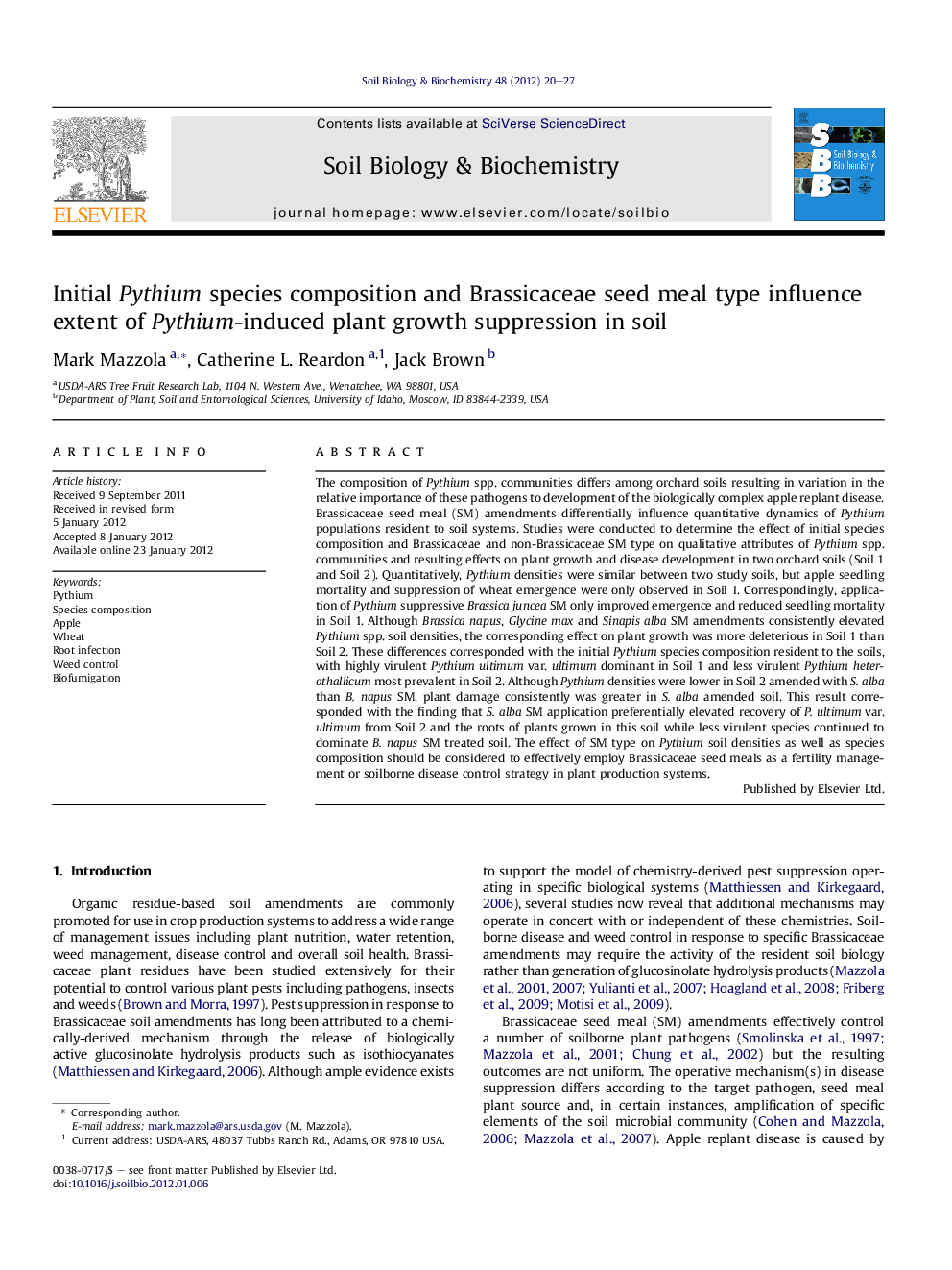| Article ID | Journal | Published Year | Pages | File Type |
|---|---|---|---|---|
| 2024929 | Soil Biology and Biochemistry | 2012 | 8 Pages |
The composition of Pythium spp. communities differs among orchard soils resulting in variation in the relative importance of these pathogens to development of the biologically complex apple replant disease. Brassicaceae seed meal (SM) amendments differentially influence quantitative dynamics of Pythium populations resident to soil systems. Studies were conducted to determine the effect of initial species composition and Brassicaceae and non-Brassicaceae SM type on qualitative attributes of Pythium spp. communities and resulting effects on plant growth and disease development in two orchard soils (Soil 1 and Soil 2). Quantitatively, Pythium densities were similar between two study soils, but apple seedling mortality and suppression of wheat emergence were only observed in Soil 1. Correspondingly, application of Pythium suppressive Brassica juncea SM only improved emergence and reduced seedling mortality in Soil 1. Although Brassica napus, Glycine max and Sinapis alba SM amendments consistently elevated Pythium spp. soil densities, the corresponding effect on plant growth was more deleterious in Soil 1 than Soil 2. These differences corresponded with the initial Pythium species composition resident to the soils, with highly virulent Pythium ultimum var. ultimum dominant in Soil 1 and less virulent Pythium heterothallicum most prevalent in Soil 2. Although Pythium densities were lower in Soil 2 amended with S. alba than B. napus SM, plant damage consistently was greater in S. alba amended soil. This result corresponded with the finding that S. alba SM application preferentially elevated recovery of P. ultimum var. ultimum from Soil 2 and the roots of plants grown in this soil while less virulent species continued to dominate B. napus SM treated soil. The effect of SM type on Pythium soil densities as well as species composition should be considered to effectively employ Brassicaceae seed meals as a fertility management or soilborne disease control strategy in plant production systems.
► We examine the effect of Brassicaceae seed meal type on Pythium species composition. ► Differential seed meal effects on Pythium-induced differences in disease incidence. ► We examine the differential nature of these responses in varying soils. ► This knowledge will allow for more predicatable use of seed meal for pest control.
